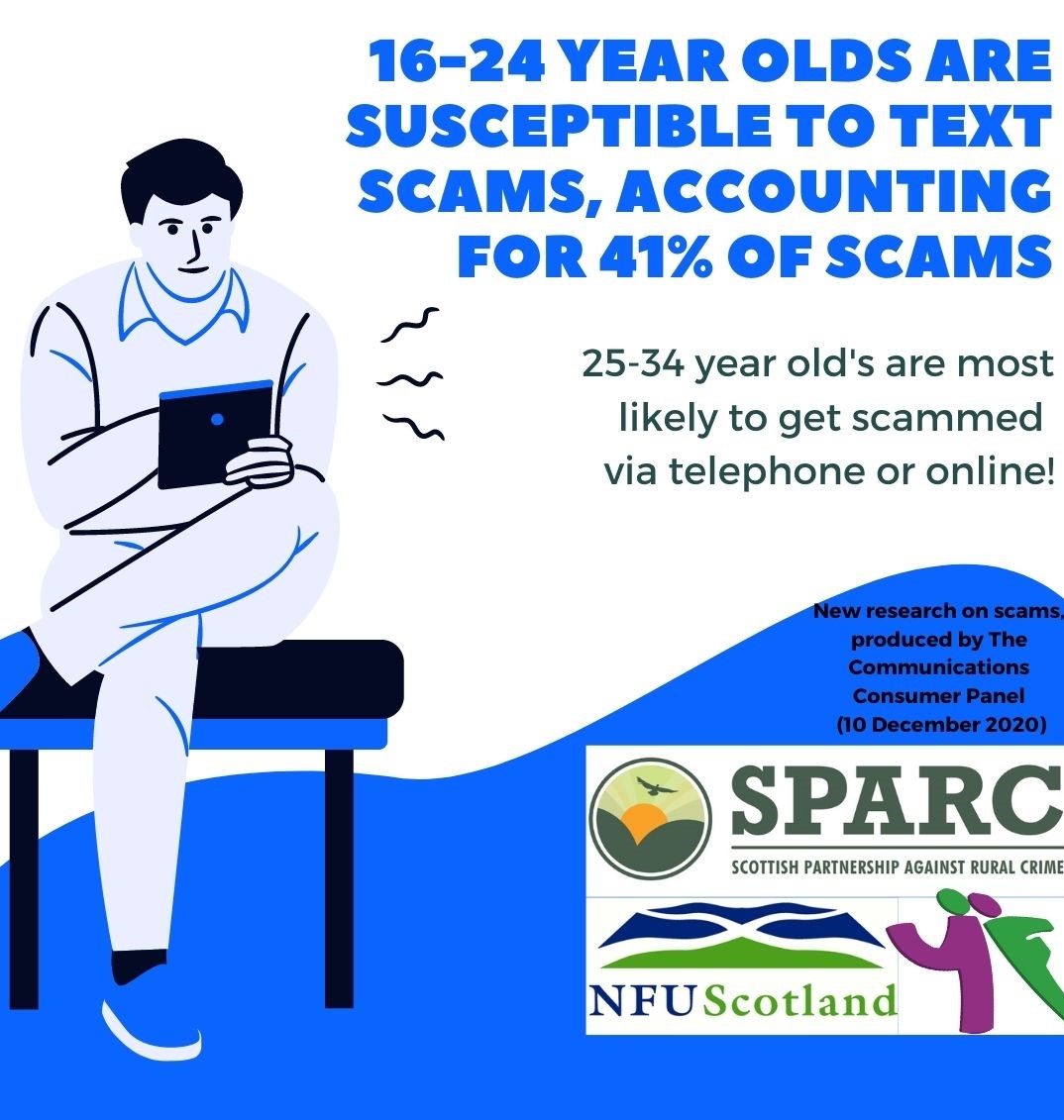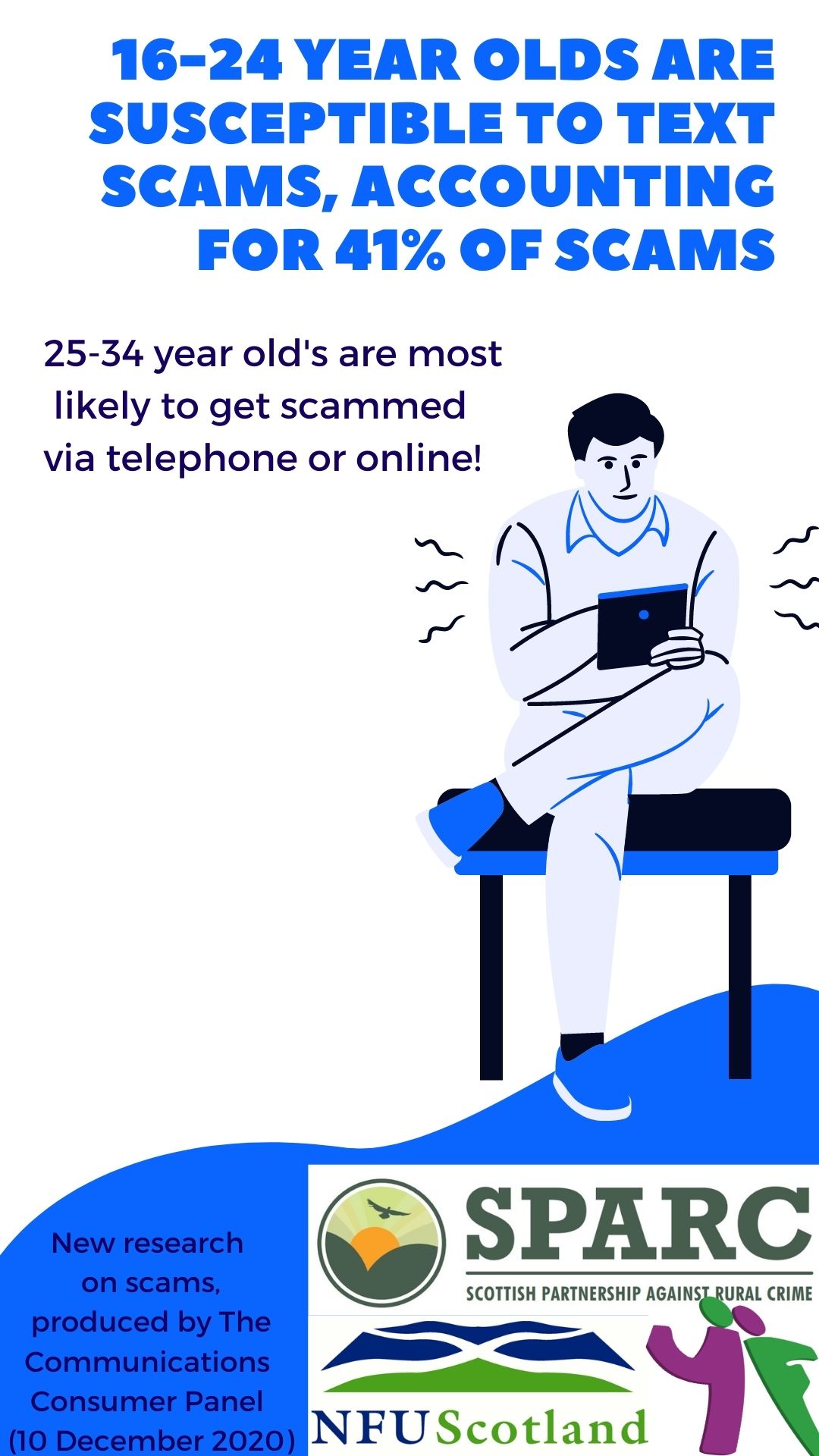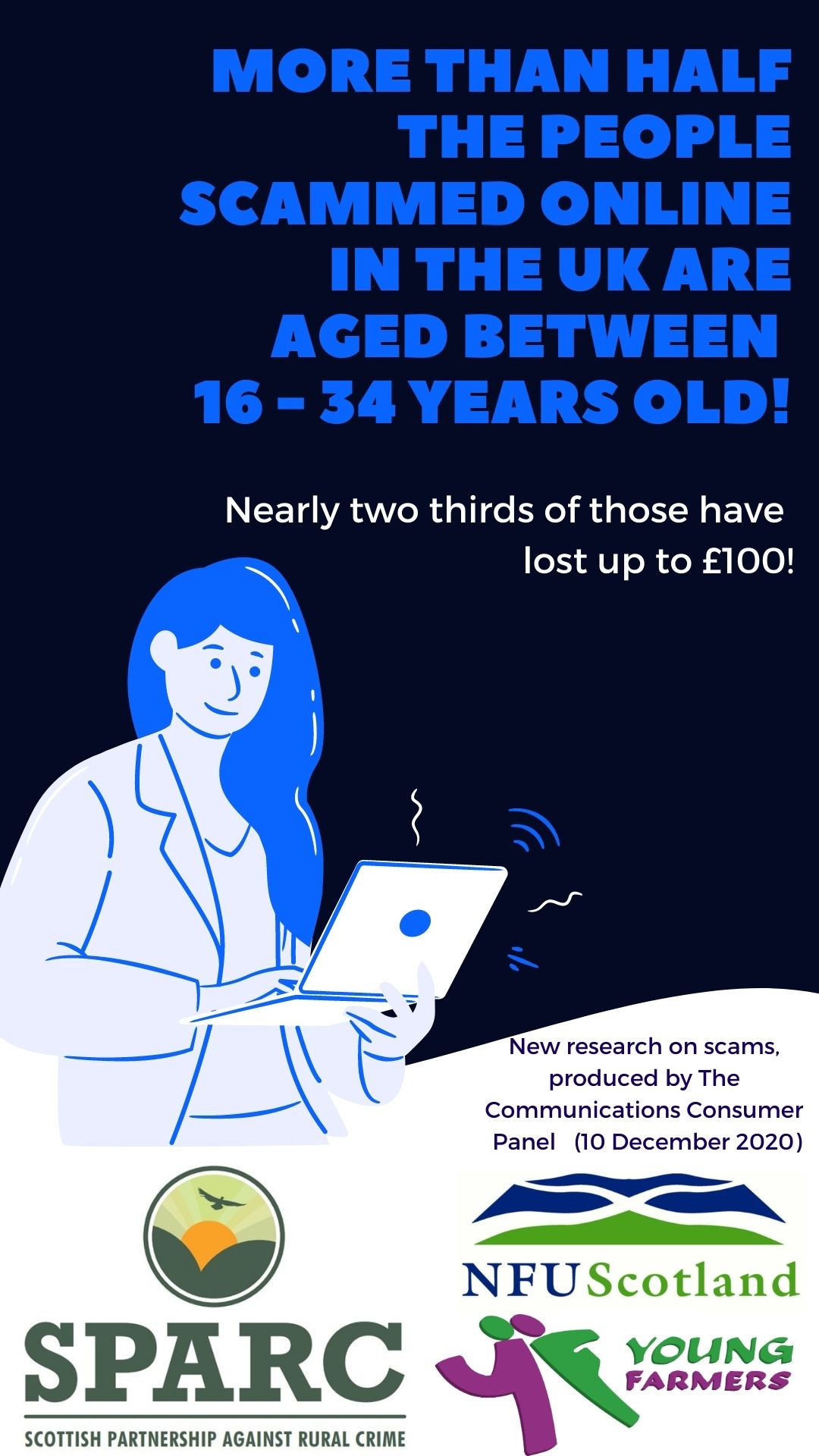
24 Feb Young Scots in Agriculture are easy bait for cyber criminals!
Do you feel fully aware, in knowing that you could recognise a scam message … claiming to offer financial support during lockdown? You might be able to answer yes – but how many of your rural community individuals around you, neighbours and the likes, could say the same?
As we hurtle into new ways of living, with communications services playing a huge key role in people’s lives, of all ages – new findings from The Communications Consumer Panel found fraud or ‘scams’ has cost the UK £190 billion a year! Far too many personal lives being intruded and businesses being conned.
With the information of their report, showing that 62% of 16-24 year old’s lost up to £100 and that young people aged between 16-34 were the most susceptible to being scammed, accounting for over half of all the scams experienced in the UK (52%).
These crimes are closely connected with other aspects of organised criminal activity.
No matter the age of the victim, there’s long lasting significant emotional or psychological impact as a result! South of the border, both the National Cyber Security Centre (NCSC) and the National Farmers’ Union (NFU) have published tailor-made cyber security advice.
With the shocking statistics of the younger generation of the agricultural sector being targeted – The Scottish Partnership Against Rural Crime (SPARC) together with NFU Scotland and SAYFC Young Farmers would like to warn Scottish farmers and crofters to be vigilant to these threats, by sharing these information links and guidance to help improve the security and resilience of agricultural businesses throughout the country against cyber threats.
The Communications Consumer Panel found that 16-24 year olds were most susceptible to receive text scams, which accounts for 41% of these scams! Of those 16-24 year olds who lost money, just under two thirds (62%) lost up to £100.
The higher age bracket of 25-34 year olds, it was found in their December 2020 findings – are most likely to get scammed via telephone or online.
Malicious scammers have the technical abilities for fraudulent activity by texting, phoning and emailing you personally! However they can also attack your business potentially resulting in financial loss for those businesses thought of as ‘secure’ businesses.
The panel have now published its research on scams and fraudulent activity highlighting that their participants who had been subject to scams were convinced that the appearance of these criminals seemed legitimate and that they’re style of communication was trusted due to their research into businesses they were mimicking.
Those with low confidence in technology were being exploited, the panel research found with designs, images, logos and uniqueness of a business’s product looking ‘the real deal’. Often, scammers use slogans showing time-limited offers to consumers as a method of captivation and luring.
Keeping safe online, is everybody’s business! Nobody should be too embarrassed to talk to friends or family if they’ve been tricked due to the likeable, friendly nature of the fraudsters.
From qualitative interviews conducted by the Consumer Panel, participants spoke of their embarrassment at being caught out and their subsequent loss of self-belief.
SPARC, NFUS & SAYFC feel that now is the time for young people in Scotland and particularly, those working or living in rural Scotland – to recognise that this is an issue that is not confined to older or less digitally skilled people.
Young Scots in agriculture perhaps need more of a helping hand from the organisations that surround them to understand how to look after their money and which payment methods are more secure than others.
To start the journey of becoming a more resilient individual, or for your business to gain a more secure stance in the industry – please check out the information available from organisations that are there to help, below:
- COMMUNICATIONS CONSUMER PANEL RESEARCH, 10th DECEMBER 2020
- NATIONAL CYBER SECURITY CE NTRE’S ‘CYBER SECURITY FOR FARMERS’ GUIDANCE
- HMRC’S ADVICE FOR THOSE CONCERNED ABOUT HMRC BRANDED EMAILS, TEXT MESSAGES AND PHONE CALLS
- THE SUSPICIOUS EMAIL REPORTING TOOL BY NCSC Please forward any suspicious emails to: report@phishing.gov.uk
Suspicious text messages should be forwarded to 7726. - CYBER SCOTLAND’S JANUARY 2021 BULLETIN
- POLICE SCOTLAND’S FARMER’S BASIC PAYMENT SCHEME’S LETTER Farmers Crofters BPS_20
- ROYAL BANK OF SCOTLAND’S ‘HELP PROTECT YOUR BUSINESS’ GUIDANCE TO HELP YOU BEAT THE CRIMINALS



